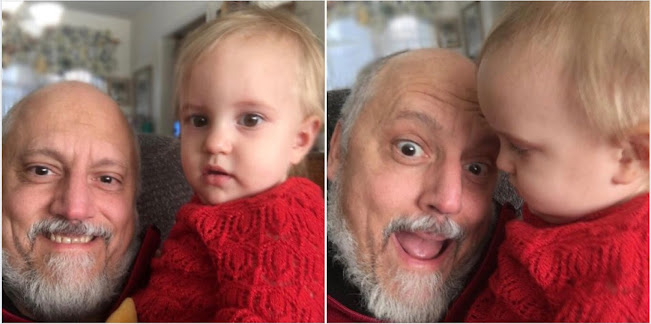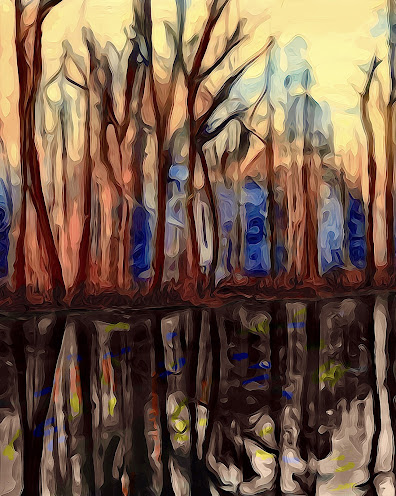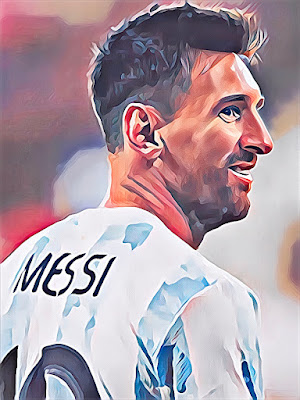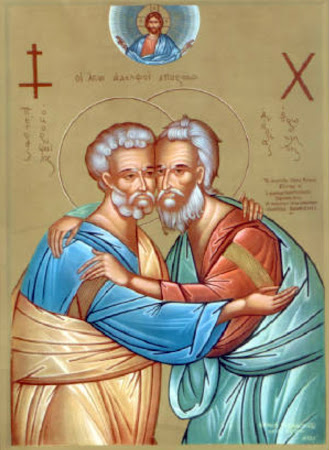Today is the feast day of Saint Juan Diego Cuauhtlatoatzin. You may have missed it, because it ranks as "only" an optional memorial.Who is Juan Diego? Even now, he is largely hidden from us.
He was always loved by the simple people who came for centuries to the church on a hill in Mexico City to see his wondrous cloak. But not much was said about him in the past. Some tried to deny that he ever existed, though most didn't go that far. After all, we had his cloak.
When I was young and Catholic in the United States, he was just "the guy" in the story of the amazing and scientifically inexplicable image of Our Lady of Guadalupe. Wow, the incredible tilma and its image! There were the studies, the cactus fibers, the miraculous preservation of the cloth, the mysterious colors, the eyes, etc. And millions of conversions, of course. (All of these things are fascinating and important, I hasten to add.)
But who was Juan Diego?
I must say, it never seemed to matter much.
I can recall that it flashed through my mind: "Just 'plain' Juan Diego? These Marian visionaries are usually saints or at least blessed, but he's 'just plain Juan Diego.' Seems odd. Wonder why."
But I didn't give it much thought. Nor did I think too much about this particular way that Mary had chosen to be present as a merciful, loving mother for me in my own history, on my own continent.
Only later did I begin to learn that the Virgin of Guadalupe is an enduring and vital presence at the center of the American continent, and indeed a profoundly personal presence for me, just as she wishes to be for every person who visits her in that place.
As with so many other things, the man who taught me to love Our Lady of Guadalupe was the man who taught me to love Jesus Christ, to love the human person, to love my own life. Saint John Paul II made five pilgrimages to the Basilica of Our Lady of Guadalupe during his pontificate. He brought to her a love that convinced me there was a person there, not just a remarkable artifact.
The tilma is Mary's way of "using media" to be present to her children.
But you see, whenever I try to talk about Saint Juan Diego Cuauhtlatoatzin, even now, it seems natural to pass him by and go right to Mary.
I don't think he has a problem with that.
Here is a "saint" who is so humble that his identity is almost entirely transparent to the Mother of God. It is true, he is a patron of indigenous peoples of America, as well as all lay persons. He is an exemplar of the “ordinary person” in the Church who is called to the persistent and joyful labor of evangelization.
Juan Diego was just a poor man who encountered the beauty of Jesus living in Mary, and followed. He gave himself over to a humble place in a great and mysterious story. And he remains standing behind the Merciful Mother, giving her a place where she can give Jesus to us.
I pray to him every day. I am convinced that he is one of the greatest saints of the Church. He stands forever in a humble relationship to Mary, her "dearest and smallest son" and in this way so much like Jesus.
John Paul II brought Juan Diego out from behind the tilma. I was there in the plaza of the basilica twenty years ago—on July 31, 2002—along with millions of pilgrims throughout the city. And I was convinced that I was watching a saint canonizing another saint.
Saint John Paul II was suffering so much at that time, it was painful to look at him even from a distance. But on that day, there was something luminous about him. I can only describe it by recalling my impression at that time; I saw John Paul as though he were pierced with the form of the Cross on his whole body. And yet, he moved—almost miraculously—for it was Crucified Love that carried him.
John Paul II came to Mexico because he loved Our Lady of Guadalupe and he loved "America"—which for him was one great continent—and he loved the "Ecclesia in America."
It was love that transfigured him in those moments on that day. And I thought to myself, "This is what it must have been like to see Saint Francis of Assisi." This was the impression that came to me, spontaneously, as I watched this magnificent, wounded, broken lover of Christ, the man who was the outstanding witness to the Gospel in my lifetime: Saint John Paul II.
He left an unforgettable mark on the Church in America during that journey. Many remember it primarily as the occasion of his last international World Youth Day celebration, held in Toronto. But Toronto came after the pilgrimage to Mexico to be with Mary and to honor the one she called "Juanito."
It strikes me that poor Saint Juan Diego was "overshadowed"—even at his own canonization—by the stupendous presence of the great Saint John Paul II. But once again, I don't think that the humble Saint Juan Diego Cuauhtlatoatzin had any complaints about that.
These two great saints, and our Merciful Mother, help to sustain in me a “supernaturally realistic” hope for the future of “America,” the future of all the peoples who share this common land.
————————————————————
I worked up a couple of Juan Diego Digital Art pieces today at JJStudios. In both the portrait above and the “tilma scene” below, I began with photographs of small statues, replaced the backgrounds, and used a variety of virtual tools (including those that allow me to “work by hand”) to shape and “sculpt” these digital images.
.

































